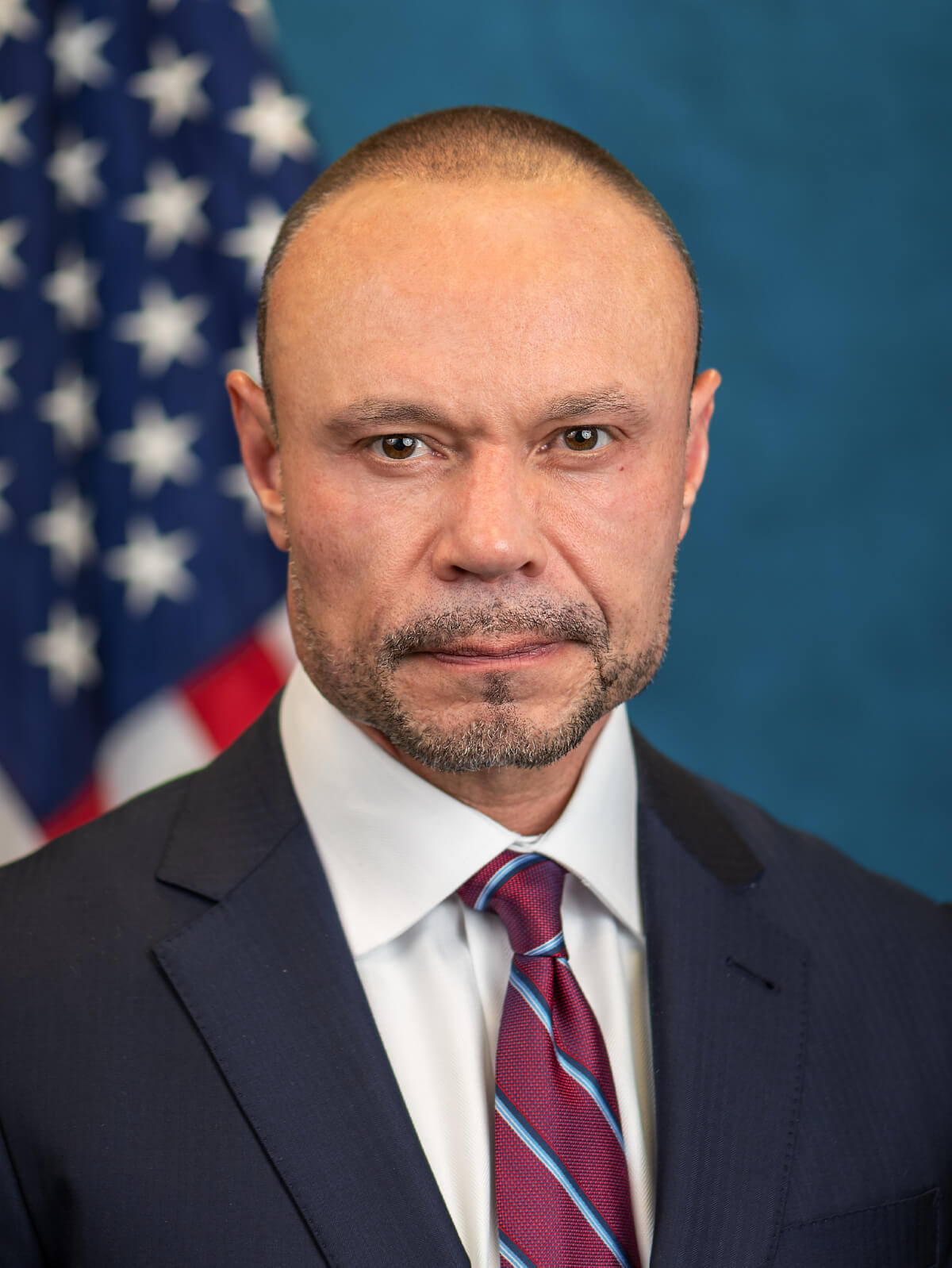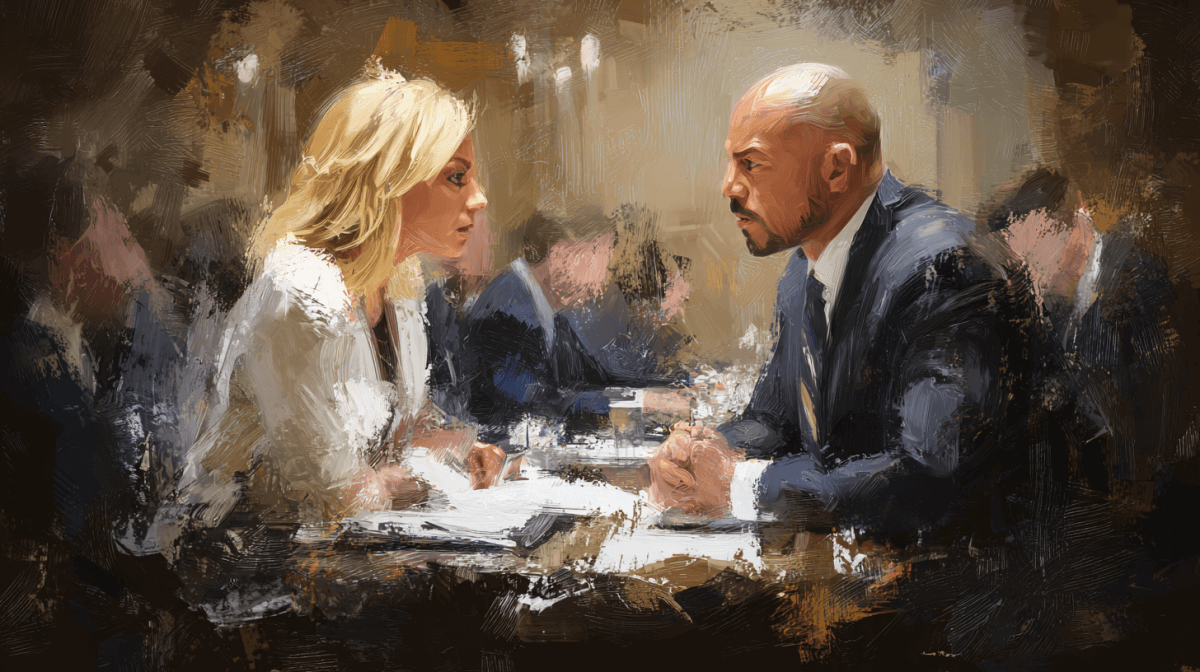
A heated confrontation between FBI Deputy Director Dan Bongino and Attorney General Pam Bondi over the handling of Jeffrey Epstein files has escalated into a potential resignation crisis that threatens to divide President Trump's law enforcement leadership just months into his administration.
Sources familiar with the matter report that Bongino took Friday off work and has told people he is seriously considering leaving his position after what multiple sources described as a contentious Wednesday meeting at the White House over the Justice Department's controversial decision to declare the Epstein case effectively closed.
Wednesday White House Showdown
The explosive confrontation occurred during a meeting that included Bongino, Bondi, FBI Director Kash Patel, White House Chief of Staff Susie Wiles, and Deputy Chief of Staff Taylor Budowich. The meeting centered on a NewsNation story that suggested the FBI wanted to release more Epstein information but was blocked by the Department of Justice.
"Pam said her piece. Dan said his piece. It didn't end on friendly terms," one source briefed on the heated discussion told Axios. Bongino left the meeting angry, according to sources, feeling that he and Patel were being unfairly blamed for the public backlash over the Epstein files decision.
During the confrontation, Bongino and Patel were questioned about whether they had leaked information suggesting dissatisfaction with DOJ's handling of the case. Bongino denied being the source of the NewsNation story, though he notably did not sign onto statements defending the Justice Department's review that were issued by Bondi, Deputy Attorney General Todd Blanche, and Patel.
Background of the Controversy
The internal discord stems from the Justice Department and FBI's joint release of a two-page memo on Sunday concluding that Jeffrey Epstein did not have a "client list" and confirming he died by suicide in 2019. This announcement directly contradicted earlier statements by Bondi, who had claimed in February during a Fox News appearance that Epstein client files were sitting on her desk for review.
"Bongino is out of control furious," one person who has spoken with the deputy FBI director told NBC News. "This destroyed his career. He's threatening to quit and torch Pam unless she's fired."
The controversy has been particularly damaging because it involved the release of surveillance video from outside Epstein's prison cell, which the administration presented as definitive proof of suicide. However, the 10-hour video contained one missing minute, fueling conspiracy theories and criticism from Trump's base about a potential cover-up.
Sources indicate that Bongino was initially excited about discovering the surveillance video, viewing it as definitive evidence that would put conspiracy theories to rest. However, when the video's release along with the DOJ memo triggered fierce backlash from Trump supporters, Bongino felt betrayed and blamed Bondi's handling of the situation.
Political Firestorm from Trump's Base
The Epstein files decision has sparked intense criticism from influential Trump supporters and far-right personalities who had been promised full transparency. Conservative influencer Laura Loomer, who first reported on the Bongino-Bondi clash, has been particularly vocal in her criticism.
"My sources tell me that the FBI wanted to release more information about Jeffrey Epstein, and Pam Bondi and her DOJ said NO," Loomer posted on social media. "This has caused tension between Bondi, Kash, and Bongino."
The criticism has extended beyond social media, with some questioning whether the administration is protecting powerful figures connected to Epstein. This has put both Bongino and Patel, who came from conservative media backgrounds, in an uncomfortable position with their former allies.
Potential Domino Effect
Multiple sources suggest the internal tensions extend beyond just Bongino. According to Daily Wire correspondent Mary Margaret Olohan, "Source close to Dan Bongino tells me it's either him or Pam Bondi, and that he won't stay at FBI if she stays at DOJ."
More concerning for the administration, sources close to the DOJ indicate that FBI Director Kash Patel also wants Bondi removed and might consider leaving if Bongino resigns. "Source close to DOJ says Kash Patel also wants Pam Bondi gone, and that he'd consider leaving if Bongino leaves," Olohan reported.
This potential chain reaction could devastate Trump's law enforcement team, removing two of his most prominent appointments from their positions over internal disagreements about document releases.
Administration Response
The White House moved quickly Friday afternoon to contain the damage, releasing statements aimed at projecting unity and downplaying reports of internal strife.
"President Trump has assembled a highly qualified and experienced law and order team dedicated to protecting Americans, holding criminals accountable, and delivering justice to victims," White House Principal Deputy Press Secretary Harrison Fields said in a statement. "This work is being carried out seamlessly and with unity. Any attempt to sow division within this team is baseless and distracts from the real progress being made in restoring public safety and pursuing justice for all."
White House Press Secretary Karoline Leavitt provided additional support for Bondi, stating: "President Trump is proud of Attorney General Bondi's efforts to execute his Make America Safe Again agenda, restore the integrity of the Department of Justice, and bring justice to victims of crime. The continued fixation on sowing division in President Trump's Cabinet is baseless and unfounded in reality."
Damage Control Efforts
Deputy Attorney General Todd Blanche attempted to quell the controversy with his own statement on social media Friday morning, insisting there was no daylight between FBI and DOJ leadership.
"I worked closely with Patel and Bongino on the joint FBI and DOJ memo regarding the Epstein Files," Blanche posted on X. "All of us signed off on the contents of the memo and the conclusions stated in the memo. The suggestion by anyone that there was any daylight between the FBI and DOJ leadership on this memo's composition and release is patently false."
However, sources familiar with the situation suggest that while officials may have agreed on the memo's contents initially, the public rollout and subsequent handling of criticism has created significant tensions.
Trump's Position
President Trump has not directly addressed the internal tensions, but sources close to the administration indicate he remains supportive of Bondi.
"Trump loves Pam and thinks she's great," a senior White House official told Axios.
This support was demonstrated during a recent press conference when Trump grew visibly frustrated with continued questions about Epstein. "Are you still talking about Jeffrey Epstein?" Trump asked a reporter. "This guy's been talked about for years. You're asking... We have Texas, we have this, we have all of the things. And people are still talking about this guy, this creep? That is unbelievable."
Historical Context
The internal fighting over Epstein files represents a broader challenge facing the Trump administration as it attempts to balance campaign promises of transparency with the realities of law enforcement and national security considerations. Both Bongino and Patel came to their roles from conservative media backgrounds where they had criticized the "deep state" and promised to reveal hidden information.
The transition from media personalities to government officials has proven challenging, particularly when their supporters expect immediate delivery on promises of full disclosure. The Epstein case has become a particular flashpoint because it involves long-standing conspiracy theories and intense public interest.
Uncertain Future
As of Friday evening, Bongino had not made a final decision about his future, though sources suggest he is seriously considering departure. The deputy director, who is normally active on social media, has been silent since Wednesday's confrontation.
The situation remains fluid, with multiple reports suggesting Bongino may resign as early as Monday if the situation isn't resolved. Such a departure could trigger the broader exodus that sources have warned about, potentially leaving Trump's FBI leadership in chaos.
For now, both Patel and Bondi are reportedly committed to staying in their positions, though the underlying tensions over document releases and public messaging appear far from resolved.
The controversy highlights the ongoing challenge facing the Trump administration as it navigates between satisfying its political base's demands for transparency while managing the practical realities of law enforcement and legal constraints.
Sources: Fox News, CNN, Axios, Rolling Stone, NBC News, Associated Press, RedState, Gateway Pundit, Newsweek, Washington Post, Townhall, Semafor






